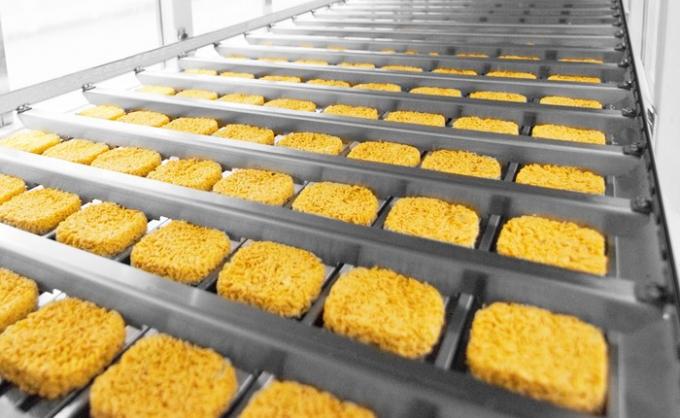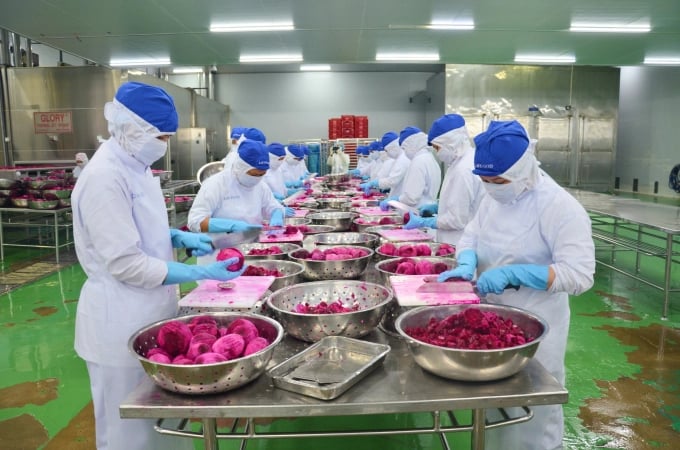November 27, 2025 | 22:20 GMT +7
November 27, 2025 | 22:20 GMT +7
Hotline: 0913.378.918
November 27, 2025 | 22:20 GMT +7
Hotline: 0913.378.918

The EU has set the inspection frequency for Vietnamese instant noodles at 20%.
On the night of May 17, Vietnam SPS Office received an application for assistance from an import company in the Czech Republic.
This company wanted to quickly import a large amount of instant noodles from company A in Vietnam. However, this imported shipment possessed risks of not being able to clear customs. It seemed that company A lacked the certification of the Ministry of Industry and Trade.
Upon realizing that this was an urgent matter, on the same day night time, Vietnam SPS Office held an online meeting with representatives of the Ministry of Industry and Trade and related parties to support the Czech Republic’s company in receiving the goods when it reached the port.
Receiving instructions from this meeting, on May 18 company A came to work with the Ministry of Industry and Trade. In view of creating all favorable conditions and removing obstacles as well as difficulties for businesses, the Ministry of Industry and Trade had supported the enterprise with registration procedures according to Official Letter 1150/BCT-KHCN issued on March 8, 2022, also ensuring the provisions of the EVFTA framework.
Dragon fruit and instant noodles are products subject to increased inspection frequency by the EU according to an announcement dated December 15, 2021. Both products are currently subject to a 20% rate, effective on January 6, 2022.

Dragon fruit preliminary processing facility for export in Long An province.
Periodically, every six months, the European Commission (EC) will review the lists of food and feedstuffs of non-animal origin from a number of countries subjected to temporary strengthening of official controls at border checkpoints to ensure food safety.
In order to achieve the goal of reducing inspection frequency for instant noodles and dragon fruit as well as other export products, Mr. Ngo Xuan Nam, Deputy Director of Vietnam SPS Office, said that state management agencies, businesses and industry associations needed to closely coordinate on all three aspects.
Firstly, Vietnamese enterprises must absolutely comply with registration and certification from competent authorities. The three registration focal points are the Ministry of Agriculture and Rural Development, the Ministry of Industry and Trade and the Ministry of Health, and the only contact point is the Vietnam SPS Office.
Secondly, enterprises must closely monitor residue levels in products. In addition, issues such as labor, environment, and production organization must comply with the provisions of the EVFTA.
Thirdly, enterprises must regularly check and review the production link chain from growing areas, preliminary processing and processing to packaging, transportation and distribution.
"Vietnam's agricultural exports are benefiting from the EVFTA. We are traveling on a highway, with the main accelerator being key agricultural products and the common goal of increasing added value for products," said Mr. Nam.
The head of Vietnam SPS Office also expressed his wish that domestic enterprises would deepen their insight, conduct business and production in a responsible manner, and create conditions for Vietnam and the EU to further promote trading activities.
Translated by Samuel Pham

(VAN) China’s cooking oil is suddenly flooding into India. It all comes down to a soybean surplus that Beijing doesn’t quite know what to do with.

(VAN) An Giang promotes supply-demand connections, standardizes quality and builds value chains, creating a foundation for sustainable bird’s nest development and aiming to expand exports.
/2025/11/24/5339-4-nongnghiep-075331.jpg)
(VAN) Recently, the conference on 'Sustainable Fisheries Linkage Chain - Tilapia for Export' took place in Tien Hai commune, Hung Yen province.
/2025/11/21/4309-2-153400_128.jpg)
(VAN) Green and low-emission rice is paving the way for Vietnamese rice to enter high-end markets, marking the beginning of a transformation journey toward greening and elevating the national rice brand.

(VAN) ‘Right to Win’ outlines a national action plan that shapes a new vision for Viet Nam’s agriculture in an era of renewal and global integration.

(VAN) Lam Dong’s farmed sturgeon output this year is expected to reach 2,300 tons, worth VND 450 billion, affirming the brand’s position on the market.

(VAN) A surge in Ukrainian egg exports, largely driven by soaring sales to the UK over the last few years, has notably pushed up egg prices on the domestic market.